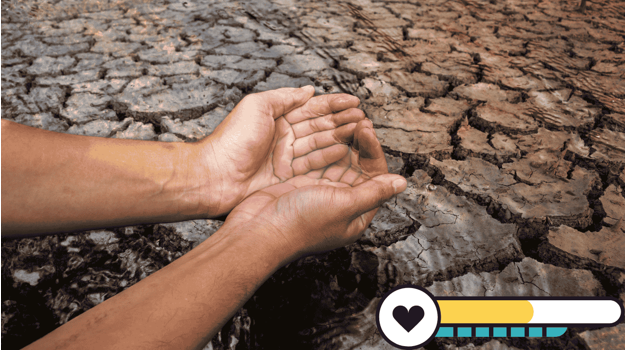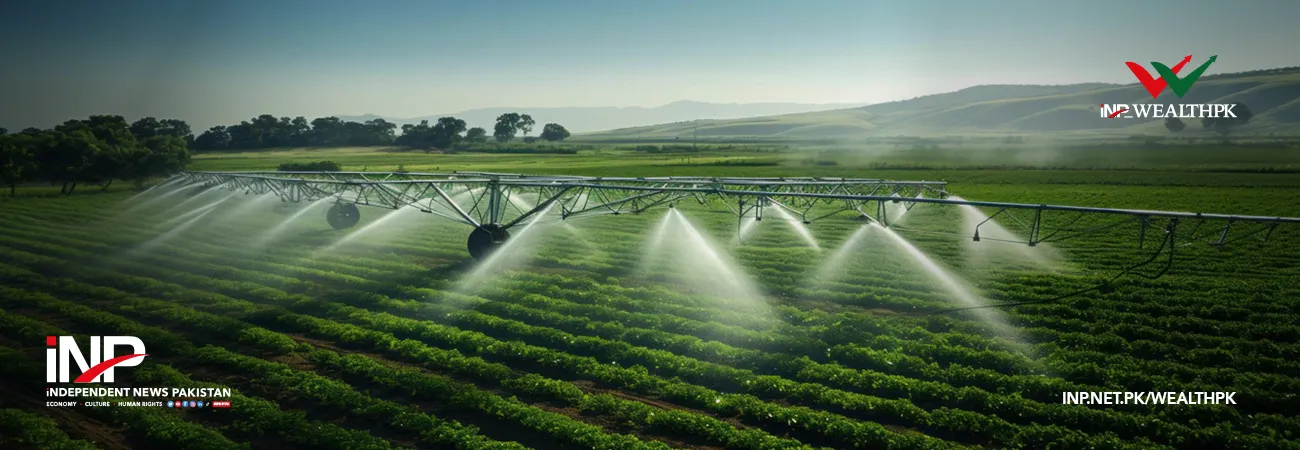آئی این پی ویلتھ پی کے
Muhammad Saleem
Agricultural experts have called for the urgent adoption of community-based irrigation systems to tackle Pakistan’s growing water crisis. Dr Iftikhar Ali from the University of Agriculture Faisalabad, while speaking to WealthPK said that a community-based irrigation system offers a low-cost solution to the growing challenges of water scarcity. He noted that policymakers are under the impression that water problems need massive budgets for solutions.
However, he said that mobilising the local communities can help tackle the water crisis effectively and sustainably. He said that climate change has started to hit the cultivation cycles and rainfall patterns, requiring an immediate solution to the issue. He explained that floods in recent years have severely damaged crops. “Such damage can be controlled by constructing small reservoirs in flood-hit areas.”
He pointed out that ample land is available in flood-prone regions, which could be used for building such reservoirs through community participation. “Community-based adaptation is also the need of the hour,” he said, and suggested that people of drought-hit areas should develop a water-sharing or water-storage system tailored to their demands. “By adopting such an approach, crops in these regions can be saved from the impacts of water scarcity.”
Ali said that it is the responsibility of policymakers to train farmers in efficient water management techniques. “Without active community involvement, we simply cannot tackle the water crisis,” he said. “We must devise long-term, practical strategies while training farmers to mitigate the adverse effects of climate change, which is drying up our water resources,” he added. “We should shift towards clean energy and adopt sustainable agriculture to reverse climate change impact.”
He stressed the need to implement adaptation measures like effective on-farm water management and rainwater harvesting through pond construction for irrigation. He said that the farming community must be trained to pool their water resources and not to work in silos. “To avoid crop failures, agriculture scientists must develop drought-resistant varieties. By developing such varieties, we could easily safeguard our farmers from climate change effects.”
Sajid Ali, an agricultural expert, told WealthPK that it's a common misunderstanding that only expensive projects can tackle water or agriculture-related issues. “Mega initiatives like big dams and irrigation canals would require billions of rupees and take 10 to 15 years to complete. Opposition to such projects is another dilemma,” he added. On the contrary, he said community-based irrigation systems are cost-effective and can be developed quickly to meet the immediate needs of farmers.
He said these systems rely on local materials and labour, making them more accessible and sustainable. Besides, he noted such grassroots solutions can avoid bottlenecks like bureaucratic hurdles and political interference. “When a community builds a water project to serve its own needs, it also takes ownership – ensuring protection against water theft and wastage,” he said. Sajid said that rather than waiting for mega projects, the government should focus on smaller, decentralised initiatives that can start producing results within a single growing season.
He said the government should support farmers through small grants, training, and the legal protection of community water rights. He said that implementing community-based projects in 10,000 villages would have a significant impact on the agriculture sector. Sajid also said that promoting these initiatives could help save hundreds of billions of litres of water annually.

Credit: INP-WealthPk











